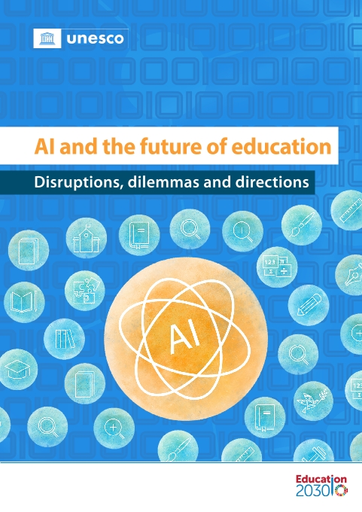Why AI Readiness Is About Culture, Not Code
Written By: Anju Shivaram, AI Project Manager, Middle States Association | Published November 3rd, 2025
In conversations with education leaders across the Middle States network, one question keeps coming up: “How do we embrace AI without sacrificing what makes learning deeply human?”
Globally, education leaders are grappling with similar AI readiness questions, as reflected in UNESCO’s comprehensive new anthology, AI and the Future of Education: Disruptions, Dilemmas and Directions (UNESCO, 2025).
As UNESCO’s report shows, schools cannot become AI ready merely by rewriting policies. Even a compelling AI vision is not enough of an answer.
Instead, AI readiness first emerges from intentional practices that honor:
Human relationships
Trust
Ethics
Agency
Purpose
Before anything else, these are questions of culture, not (AI) code.
And they match our conversations with Middle States schools. Over and over, schools describe challenges with AI tool adoption, but that tends to be the surface level symptom. Almost inevitably we discover that their true struggle lies in fostering a culture of powerful learning and human thriving supported by AI.
The most successful schools go right to the heart of that issue. As Joel Thompson, principal at Mt. Lebanon High School, put it after completing our Responsible AI in Learning (RAIL) endorsement in AI Literacy, Safety & Ethics:
“We were able to stop and think about how changes [our AI choices] align with our values… rather than just saying implement this-or-that tool.”
Pausing to prioritize values, process, and powerful learning before tools? That’s intentional culture building.
To be fair, working on school culture is messy. As organizational psychologist Adam Grant observes in “What AI Companions Are Missing” (2025), discomfort, negotiation, and the “messiness” of human relationships fuel growth. It is easier to opt out of such conversations and focus instead on “AI tool adoption,” but we will only end up bypassing the collaborative discomfort that drives true growth—and that lays the foundation for genuine AI readiness.
Schools cannot confuse accelerating AI policy adoption with AI readiness. Across the MSA network, RAIL schools are moving beyond surface level actions to answer the essential AI readiness question: What do we value as a learning community, and how might we align our use of AI to those things we value?
How is your school creating a culture rooted in human relationships, trust, ethics, agency, and purpose? And how are you using AI to support—not subvert—those things? Let us know at rail@msa-cess.org!
If you’re exploring ways to lead AI adoption responsibly at your school, learn more about Middle States’ Responsible AI in Learning (RAIL) endorsements here.
References:
UNESCO (2025). AI and the Future of Education: Disruptions, Dilemmas, and Directions.
https://unesdoc.unesco.org/ark:/48223/pf0000395236
Grant, A. (2025). What AI Companions Are Missing.
https://adamgrant.substack.com/p/what-ai-companions-are-missing

